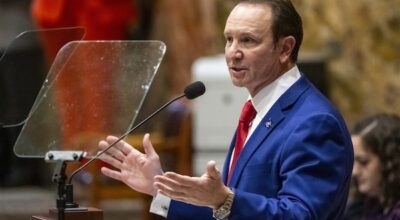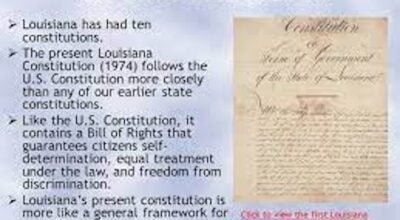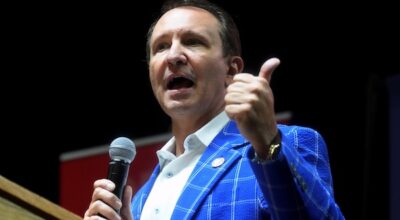Elect tax reform legislators
Published 5:45 pm Sunday, January 13, 2019
Louisiana legislators promised to reform the state’s budget and tax systems in 2017, but it didn’t happen. Republicans who control the House never explained why, but it’s obvious. They didn’t want to do anything constructive that might enhance the re-election chances of Democratic Gov. John Bel Edwards.
Reps. Julie Stokes, R-Kenner, and Barry Ivey, R-Baton Rouge, came up with excellent tax reform packages during the 2016 and 2017 sessions. Unfortunately, their GOP colleagues weren’t interested. No one expects anything different to happen during this year’s fiscal session because it is an election year.
The Council for a Better Louisiana (CABL) has come up with something that can be done. The nonpartisan agency that devotes much of its energies to improving education has reminded us that all 144 seats in the state House and Senate are up for grabs in this fall’s elections.
Lawmakers who hold one-third of those seats are term-limited, meaning there will definitely be that many new faces in the next Legislature. Others will replace moderate legislators who are leaving in large numbers. Moderates are fed-up with the uncompromising attitude of the House Republican leadership that is controlled by some 20 hardliners nicknamed the “Gang of No.”
CABL sized up recent events well when it said, “For most of the last 10 years, we have been arguing about the budget and implementing budget cuts that have threatened health care and turned our higher education system upside down…”
The Legislature did renew nearly half of a 1 percent temporary state sales tax for the next seven years that has given the state budget some stability. It took many long hours to convince enough Republican lawmakers to go along with the renewal, but some 30 of them finally helped pass the tax.
Budget and tax reform still has to be done, and there are more plans out there about how to do it than you can count.
The Pelican Institute for Public Policy said, “Working families in Louisiana need tax reform now, and if implemented fully, these reforms will level the playing field for everyone contributing tax dollars, reignite the potential of the state’s economy, lead to better quality of jobs and save Louisianans more of their hardearned money.”
Rep. Stokes chairs the Sales Tax Streamlining & Modernization Commission that has tried to reform the state’s sales tax system. The conservative Tax Foundation calls the system “duplicative, outdated, inconsistent and inefficient.”
Surprisingly, some sales tax reform took place when the Legislature kept nearly half of that temporary 1 percent state sales tax. Lawmakers suspended many of the sales tax exemptions that are totally unnecessary. If most of the exemptions were suspended, as many reform plans have suggested, the overall 4.45 percent state sales tax could actually be lowered.
One of the best tax reform studies was done in 2015 by a group of state economists who were asked by legislative leaders to closely examine the state’s tax structure, including the tax exemptions, deductions, credits and rebates. They concluded that reform should provide sufficient revenues, be predictable and stable, promote competitiveness, be fair and be simple.
Unfortunately, Louisiana’s tax system is just the opposite of most of those things. Sales and personal income taxes in 2015 produced the largest amount of state revenue, about $3 billion each annually. Oil and gas revenue totaled just over $1 billion.
The state took a progressive step in 2002 when the Stelly Plan increased income taxes and decreased sales taxes that hit lower-income citizens the hardest. However, in 2008 the Legislature decreased income taxes, but made no change to sales taxes. The state has been in a financial jam since 2008.
Food used for home consumption, residential utilities, gasoline fuels and prescription drugs are still constitutionally protected, and the voters aren’t going to change those exemptions. However, if legislators eliminated all other sales tax exemptions they could save almost $1 billion annually.
The problem is every exemption has powerful supporters that can pay lobbyists to protect their interests. The personal income tax system could also stand a serious overhaul, but it is almost sacred for most Republican lawmakers. House leaders made it clear over the last three years they weren’t going to touch income taxes.
If tax and budget reform doesn’t take place soon, Louisiana will be back in fiscal trouble like it was when Edwards took office in 2016. That temporary sales tax passed last year will be off the books in just over six years, and the tax turmoil we saw last year will be back again.
Not much is going to change unless voters elect legislative candidates who are willing to upset the status quo and reform the state’s tax and budget systems. Taxpayers would benefit from lower taxes, and state government could adequately fund higher education and health care and build and repair some roads and bridges that are in terrible shape.
MGNonline





